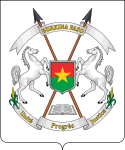The Republic of South Africa is a unitary parliamentary democratic republic. The President of South Africa serves both as head of state and as head of government. The President is elected by the National Assembly and must retain the confidence of the Assembly in order to remain in office. South Africans also elect provincial legislatures which govern each of the country's nine provinces.

The history of Burkina Faso includes the history of various kingdoms within the country, such as the Mossi kingdoms, as well as the later French colonisation of the territory and its independence as the Republic of Upper Volta in 1960.
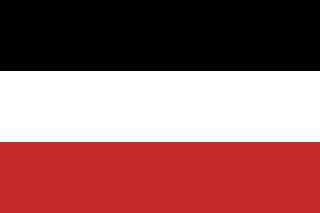
The Republic of Upper Volta was a landlocked West African country established on 11 December 1958 as a self-governing colony within the French Community. Before becoming autonomous, it had been part of the French Union as the French Upper Volta. On 5 August 1960, it gained full independence from France. On 4 August 1984, it changed its name to Burkina Faso.

Aboubakar Sangoulé Lamizana was a Burkinabé military officer who served as the President of Upper Volta, in power from 3 January 1966, to 25 November 1980. He held the additional position of Prime Minister from 8 February 1974, to 7 July 1978.
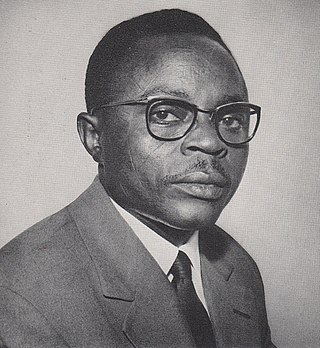
Maurice Yaméogo was the first President of the Republic of Upper Volta, now called Burkina Faso, from 1959 until 1966.
The Rassemblement Démocratique Africain, commonly known as the RDA and variously translated as African Democratic Assembly and African Democratic Rally, was a political party in French West Africa and French Equatorial Africa which was important in the decolonization of the French empire. The RDA was composed of different political parties throughout the French colonies in Africa and lasted from 1946 until 1958. At certain points, the RDA was the largest political party in the colonies in Africa and played a key role in the French government headed by the Democratic and Socialist Union of the Resistance (UDSR). Although the regional party largely dissolved in 1958 with the independence votes for the colonies, many of the national parties retained the RDA in their name and some continue to do so. The political ideology of the party did not endorse outright secession of colonies from France, but it was anti-colonial and pan-Africanist in its political stances.

Elections in Benin take place within the framework of a multi-party democracy and a presidential system. Both the President and the National Assembly are directly elected by voters, with elections organised by the Autonomous National Electoral Commission (CENA).
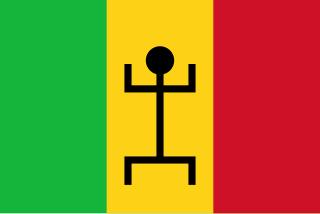
The Mali Federation was a federation in West Africa linking the French colonies of Senegal and the Sudanese Republic for two months in 1960. It was founded on 4 April 1959 as a territory with self-rule within the French Community and became independent after negotiations with France on 20 June 1960. Two months later, on 19 August 1960, the Sudanese Republic leaders in the Mali Federation mobilized the army, and Senegal leaders in the federation retaliated by mobilizing the gendarmerie ; this resulted in a tense stand-off, and led to the withdrawal from the federation by Senegal the next day. The Sudanese Republic officials resisted this dissolution, cut off diplomatic relations with Senegal, and defiantly changed the name of their country to Mali. For the brief existence of the Mali Federation, the premier was Modibo Keïta, who would later become the first President of Mali, and its government was based in Dakar, the eventual capital of Senegal.

Elections in Niger take place within the framework of a semi-presidential system. The President and National Assembly are elected by the public, with elections organised by the Independent National Electoral Commission (CENI).

Territorial Assembly elections were held in French Upper Volta on 31 March 1957. The result was a victory for the Unified Democratic Party, which won 33 of the 68 seats in the Assembly.
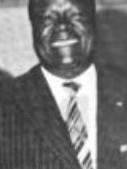
Gérard Kango Ouédraogo was a Burkinabé statesman and diplomat who served as Prime Minister of Upper Volta from 13 February 1971 to 8 February 1974. He was subsequently President of the National Assembly of Upper Volta from October 1978 to November 25, 1980.
Articles related to Burkina Faso include:

Upper Volta was a colony of French West Africa established in 1919 in the territory occupied by present-day Burkina Faso. It was formed from territories that had been part of the colonies of Upper Senegal and Niger and the Côte d'Ivoire. The colony was dissolved on 5 September 1932, with parts being administered by the Côte d'Ivoire, French Sudan and the Colony of Niger.

General elections were held in Zambia on 19 December 1968 to elect the National Assembly and President. The first post-independence polls saw incumbent Kenneth Kaunda retain his post as president, whilst his United National Independence Party, the only party to field candidates in all 105 constituencies, won 81 of the 105 seats in the National Assembly. Voter turnout was 82.5% in the parliamentary election, but 87.1% in the presidential election.

Parliamentary elections were held in the Republic of Upper Volta on 7 November 1965. The country had been a one-party state since 1960, with the Voltaic Democratic Union–African Democratic Rally as the sole legal party. It therefore won all 75 seats in the National Assembly. Voter turnout was 97.4%.

Parliamentary elections were held in the Republic of Upper Volta on 20 December 1970, following the restoration of multi-party democracy in a referendum earlier in the year. The result was a victory for the former sole legal party, the Voltaic Democratic Union–African Democratic Rally, which won 37 of the 57 seats in the National Assembly. Voter turnout was 48.3%.

Elections to the French National Assembly were held in the territory of Ivory Coast on 21 October 1945, with a second round on 4 November as part of the wider parliamentary elections. Voting was carried out using separate electoral colleges for citizens and non-citizens. François Reste de Roca and Félix Houphouët-Boigny were elected.

Elections to the French National Assembly was held in the territory of Ivory Coast on 10 November 1946 as part of the wider parliamentary elections. Félix Houphouët-Boigny, Zinda Kaboré and Daniel Ouezzin Coulibaly were elected on the African Democratic Rally list.
The 1966 Upper Voltan coup d'état was an event which took place on 3 January 1966 in the Republic of Upper Volta, when following large-scale popular unrest the military intervened against the government, forced President Maurice Yaméogo to resign, and replaced him with Lieutenant Colonel Sangoulé Lamizana. Lamizana would go on to rule until 1980, when yet another military coup d'état overthrew him. The 1966 coup would prove to be the first in a long line of Upper Voltan and later Burkinabé coups, both failed and successful such, and marked the beginning of half a century of military rule.

The National Union of Independents was a political party in the Republic of Upper Volta led by Moussa Kargougou.
